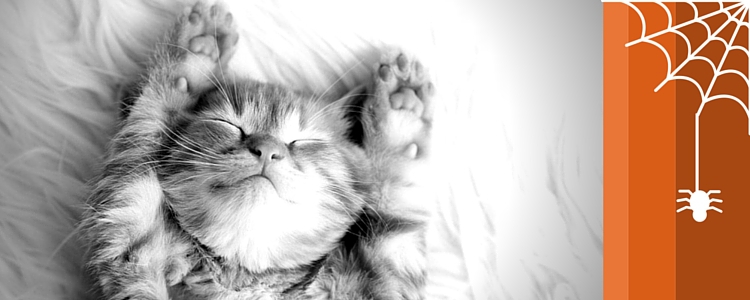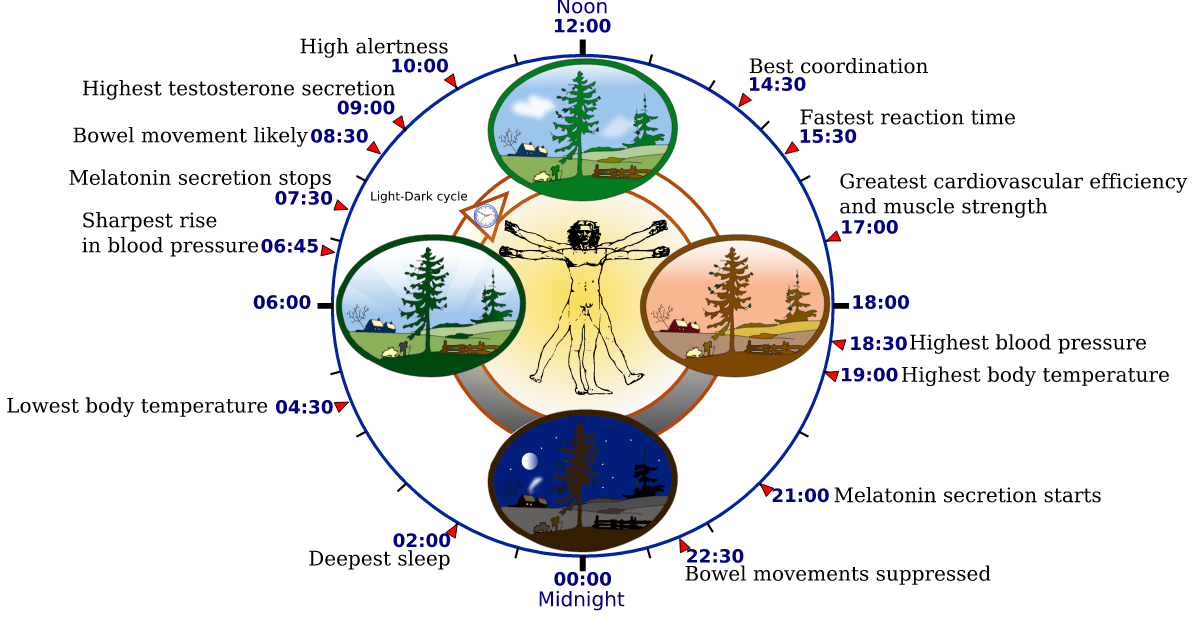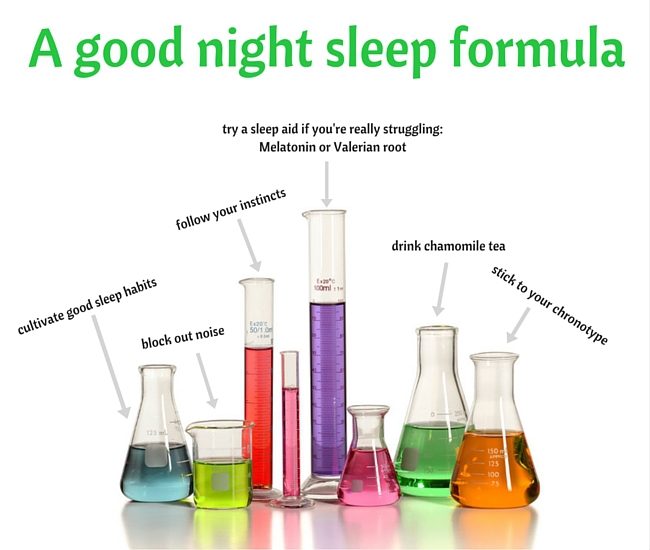How Much Sleep Do You Really Need?
Posted By

While the old adage of “I’ll sleep when I’m dead” might conjure images of a John Wayne-esque steely resolve, ignoring sleep flat out is a horrible idea.
Headlines nowadays are filled with information about sleep deprivation killing everything from your productivity to your moods, and with that, the notion of sleep being for the weak has fallen out of vogue.
The jury is in: Skimp on sleep, and you pay the price.
But how much—and how well—do you need to sleep to feel rested, recharged, and ready to tackle all of the challenges an entrepreneur faces in everyday life?
Let’s take a closer look.
Isn’t eight hours still a thing?
Similar to the notion that you need eight glasses of water a day (an idea that has been repeatedly debunked), there is the idea that you need eight uninterrupted hours of sleep per night. At least, this was the hardline gospel of the medical community.
So, that’s settled, right?
Just hold your horses. Eight hours of sleep per night isn’t a bad idea, but there are a number of things you’ll want to keep in mind.
Firstly, if you’ve been sleep deprived for a long time and are operating on sleep debt, then eight hours of sleep per night isn’t going to cut it; your body needs to take a break and catch up.
But how do you know if you’ve got sleep debt?
Well, have you slept at least 8 hours every night in recent memory? In today’s busy world and especially in the business world, the answer is almost always “no.”
Count up all those missed hours and you’ve got your sleep debt.
If you aren’t sleep deprived, eight hours is more of an estimate than a prescriptive rule, with anywhere from six to 10 hours a night being normal, depending on the person.
In one sleep study, people who were completely left to their own devices to sleep and wake naturally slept eight to nine hours per night with a brief period of waking somewhere in the middle of that time.
There are also those people who might sleep less at night but nap during the day; or people considered “short sleepers,” who function normally with somewhere around five hours of sleep per night.
And of course, if you’re getting poor quality sleep, you’ll feel tired no matter how long you’re in bed.
As Dr. Joyce Walsleben told Web M.D.:
“There’s nothing magic about that number. Everyone has different sleep needs, and you’ll know you’re getting enough when you don’t feel like nodding off in a boring situation in the afternoon.”

Some people are “short sleepers” or nappers. No two people have the same sleep needs. Two women asleep in a punt – a painting by John Singer Sargent.
What’s your chronotype?
Some people are naturally disposed to feeling more alert, awake, and productive at a specific time of the day.
In fact, it’s a concept so common, we’ve got layman terms for the different types of people: “night owls” and “early risers.”
Your chronotype therefore is your propensity for sleeping at a particular time of the day during a 24-hour period.
You are either predisposed to “eveningness” (delayed sleep period) or “morningness” (advanced sleep period), though most people fall somewhere in between these two categories.
Your predisposition to either category changes over time as well, and across developmental stages.
When I started writing this article, I had a feeling that if anyone tested me, I’d be classified a night owl. However, given that I’m usually awake at 12am and not 3am, I became curious. Was I really?
A quick bit of research led me to a test created by the University of Munich.
If you’ve got a couple of minutes to set aside (you really don’t need more), it’s worth taking. Once you’ve answered a number of questions about how and when you sleep, they measure your results against their data pool results and show you were on the scale of eveningness / morningness you fall.
If you’re a morning lark, expect to fall on the left side of the graph. A late owl, on the right.
These are my results: a ‘slight late type’. As I suspected.
The question remains, which type of sleeper is it better to be?
Remember the ditty your parents would cite to try to get you to go to sleep?
“Early to bed and early to rise, makes a man healthy, wealthy and wise.”
Attributed to Benjamin Franklin, this statement assumes you’re going to be more productive, smarter, and generally better off if you get to bed early and wake up early.
But how true is it? Does going to bed early really put you ahead of the curve?
Research is mixed.
Some studies say early risers are more proactive, others say night owls are smarter; there are strengths and weaknesses on both sides, and exceptions to the rules.
But, is one really better than the other overall?
The reality is that it depends on your own normal circadian rhythms. A lot of it is genetic and some of us are simply predisposed to be more productive at different times of day.
That said, research does suggest that you might be negatively impacted if you are forced into a chronotype that feels unnatural; ill effects range from negative moods to narcolepsy-like symptoms.
The concept of the “second sleep”

An engraving by Jan Saenredam, circa 1595. Researcher Roger Ekirch believes this engraving is further evidence of “activity at night.” Image via Wiki Commons.
Experiencing a “second sleep” or two periods of sleeping at night, broken up by a period of wakefulness, is a practice that dates back to the 16th century when people tended to sleep very early because there was no electricity.
Night time activities were limited, and had to be done by candlelight. People would wake up for a bit after sleeping four to five hours, do things like conversation, sex, or reading by candlelight, and then fall back asleep one to two hours later, sleeping for roughly the same amount of time.
According to recent research, it’s a natural biological pattern, and not anything to worry about if you’re experiencing it yourself.
One researcher went so far as to describe a consolidated eight hours of sleep per night as “an artifact of modern lighting technology.”
And of course there’s another argument that says eight hours of straight sleep is simply unnatural!
The power of the nap
In Western cultures, napping has long been the purview of babies and toddlers, but there’s a lot of data to back up the idea that naps are good for everyone.
We’ve all heard of a siesta, right?
In many countries—Mexico and Spain, for example—taking a mid-afternoon nap is so commonplace it’s literally part of the culture.
This is the idea that in the mid-afternoon, people take a bit of time to really relax and maybe catch some zzzs before returning to work for a while, after which they go home for their evening meal.
Most of us can relate to feeling a dip in energy around mid-afternoon; does a nap really help?
One study conducted by NASA found that a 40 minute nap improved performance by 34 percent and alertness by 100 percent.
The folks at Buffer also took an in-depth look at napping, and the general takeaway was that naps allow you to refocus and they boost your mood and productivity.
Even Thomas Edison, the famous inventor who scoffed at the notion of sleep and derided it a waste of time, actually took one or two naps a day.
While Western cultures typically turn their nose up at the notion of “napping,” the benefits are pretty obvious.
Maybe one day we’ll reconsider; until then, I say grab a nap when you can.
Short sleepers
The popularity of a phenomenon known as “short sleepers” has gained a sort of urban legend status: people who, to the envy of the rest of the world, need only six or so hours of sleep each night while remaining as productive and alert as the rest of us—and often times more so.
In our constantly-on-the-go culture, it can make sense to be envious of this.
Who wouldn’t want more time and energy?
But the truth is, you can’t beat yourself up about it if this doesn’t apply to you.
Short sleeping is genetic, and only one percent of the population truly has this ability (as opposed to people who just force themselves to sleep less but still experience sleep deprivation).
So if that’s not you, don’t sweat it—the remaining 99 percent of us are all in this together.

Although your circadian rhythm is built into your genes, it can be adjusted to the local environment by external stimulation like light. “Biological clock human” by YassineMrabet. Information provided by “The Body Clock Guide to Better Health” by Michael Smolensky and Lynne Lamberg; Image via Commons
Skipping sleep has seriously bad side effects
Making the time to get enough sleep is important.
If you know you’re someone that skimps on this, it’s time to start taking things seriously.
The Centers for Disease Control and Prevention have declared our societal lack of sleep a public health problem.
Here’s a list of some of the side effects of sleep deprivation, which by the way is defined as preventing someone from getting their usual amount of sleep in a 24 hour period
So, if you thought being sleep deprived meant you’re fine unless you pull back-to-back all nighters for a week, just know that your body feels the effects of lost sleep much faster that.
Here are a few of those effects:
- Impaired memory
- Impaired concentration
- Weight gain
- Irritability
- Increased risk for heart disease and diabetes
The long-term effects on your brain are intense and yes, eventually life-threatening: hallucinations, reckless decision-making, and damage to the brain stem.
And, paying off your sleep debt may not be enough to help you bounce back.
Long-term sleep deprivation could have lifelong effects, and here’s the data to back that up: read it and weep.
Our poor brains. Think lost memories, false memories, anger, slurred speech, cerebral shrinkage—the list goes on.
A sleep formula for those with places to go and people to see:
Okay, so now you know that sleep isn’t for the weak, it’s for the sharp and productive.
How do you stay on top of your sleep game?
Stick to your chronotype.
Yes, there is a lot of hoopla about the early bird getting the worm, but what if you’re the type to hit snooze?
Sometimes in our culture, sleeping in seems almost like a moral issue, with night owls being labeled “lazy” if they aren’t bright-eyed and bushy-tailed at 7:00 am.
But, the research tells us that this isn’t the case, and that it’s better for your health to be mindful of how you feel.
So, not a morning person? Who cares?
As an entrepreneur, you know what needs to get done and you’ll do it if you want to be successful; planning your schedule around the times you feel most alert and productive just makes sense.
Follow your instincts.
Don’t sweat it if you sleep in two big chunks of time, with a break in between.
Read a book for a bit, drink some tea, maybe even get some work done, and then head back to finish your night’s sleep.
Feel like you need to nap regularly? Do what you can to make that happen.
Cultivate good sleep habits.
Most sleep experts follow the idea that using your bed and bedroom only for sleep and sex is the way to go.
Stop treating your bed as a second couch where you can watch Netflix and hang out; make sure it’s a calm, relaxing space, and definitely don’t take screens to bed. That way, your brain will associate that space with bedroom-only activity and your body will naturally know that it’s time to go to sleep.
If you’re interested, you can check out some of the sleep habits of famously successful people and see how you measure up.
Having trouble sleeping?
So many things can help with this. Here are some easy fixes you could start using tonight:
- Ear plugs to block out any noise, or alternatively, a white noise machine or app can be soothing.
- An eye mask and/or blackout curtains for total darkness.
- Melatonin or Valerian root, both available at your local health food store and proven sleep-aids; though they should only be taken occasionally when you’re really having a hard time getting to sleep.
- Chamomile tea. I personally swear by this. It’s good for your overall health, being a natural de-stressor and muscle relaxant; best of all, you could drink it every night if you needed to. I drink a cup about a half hour before bed if I want to sleep more restfully.
How do you sleep? What kind of sleep habits make you feel the best?


